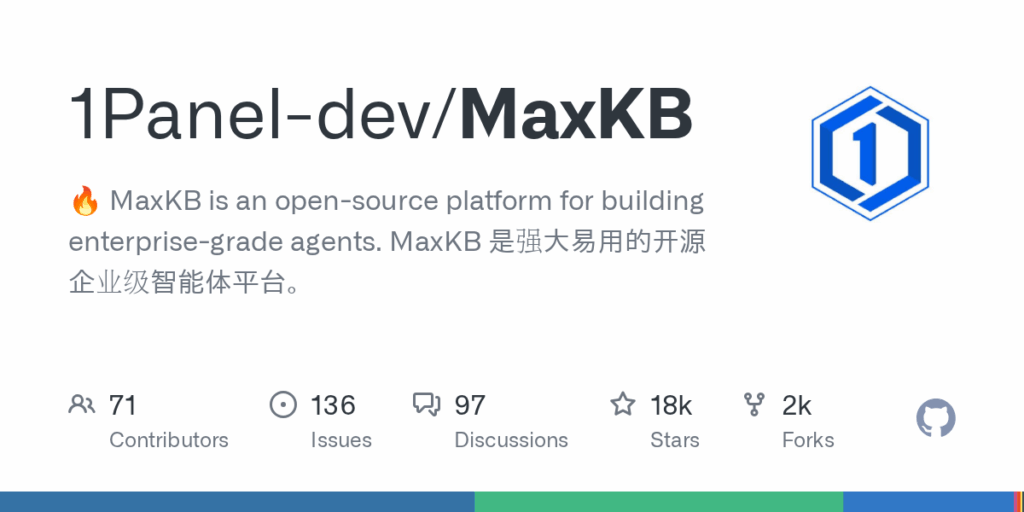MaxKB
Basic Information
MaxKB is an open-source platform for building enterprise-grade agents and knowledge-driven applications. It combines retrieval-augmented generation (RAG) pipelines, an agentic workflow engine, and multi-component tool use (MCP) to enable robust, production-ready AI workflows. The project targets scenarios such as intelligent customer service, corporate internal knowledge bases, academic research, and education. MaxKB is model-agnostic and supports both private models (examples listed in the README) and public cloud models. It provides native multi-modal support for text, images, audio and video and offers on-premise deployment options for enterprise data control. The repository includes a Docker quickstart to run the web interface and shows technical stack components like Vue.js frontend, Python/Django backend, LangChain for LLM orchestration, and PostgreSQL with pgvector for vector storage. The project is licensed under GPLv3.








